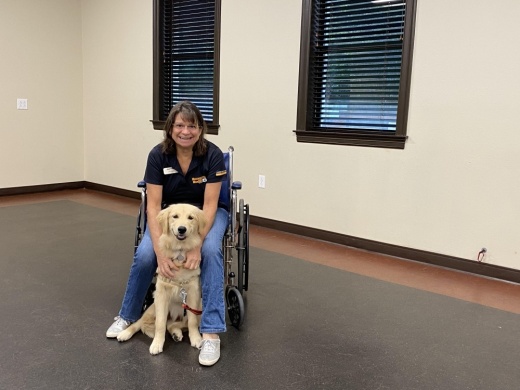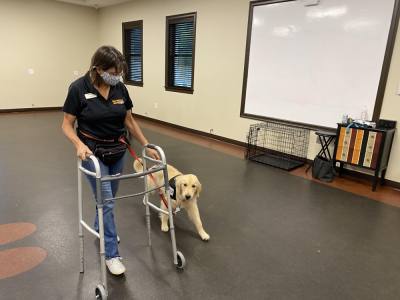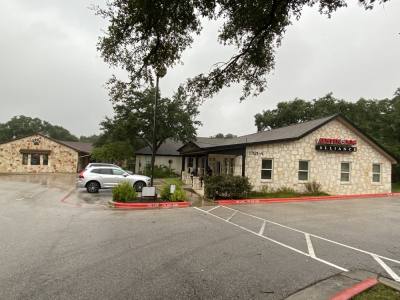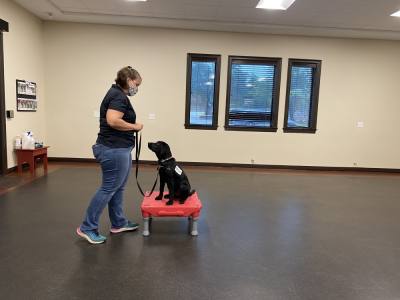When The Dog Alliance was founded in 2006 the nonprofit launched its Bow Wow Reading Dog program. Riley was the nonprofit's first therapy dog and Krakar took her into an elementary school class to spend time with the kids as she read stories to them. It took four months to get a principal to give the initial green light, Krakar said.
“At that time it was pretty radical to have a dog come into a school and read with kids,” Krakar said. “After a few weeks, [the principal] started telling all of her principal friends about how amazing it was that these kids would sit down with Riley. There was a kid with [ADHD] who just sat down next to her and started petting and you could just see him relax and not want to get up.”
Soon after, the nonprofit began going into nursing homes and hospitals with therapy dogs to help kids with autism, Krakar said. A lot of people took notice and started asking if the nonprofit could train its dogs to help individuals with PTSD, Krakar said. The nonprofit began training its first service dog through the Hounds for Heroes program in 2012 to help veterans and first responders with mental and physical disabilities free of charge.
Around 50 first responders and veterans have been served through Hounds for Heroes, Kraker said. Currently, the program has 19 dogs in the field and another 21 in training. It takes 18 to 22 months to fully train a service dog, Krakar said.
“[2012] was just the beginning [for dogs] to be accepted in the mainstream as a possible modality for helping with PTSD,” Krakar said. “Because we had all that background in working with therapy dogs it wasn’t that big of a leap to go into training service dogs for PTSD.”
The nonprofit gives individuals a choice to match up with a dog it has trained or for the individual to bring in their own dog to undergo training. The main thing that matters when people bring in their own dog is the temperament of the dog, Kraker said.
“I need a dog that is quiet in public, is receptive to people touching them, isn’t trying to guard their owner, and can focus on their owner even when there are lots of distractions,” Kraker said. “We need a dog that enjoys that kind of thing and doesn’t mind their environment changing every day.”
The COVID-19 pandemic is making fundraising and service dog training difficult for the nonprofit. A major part of the Hounds for Heroes program is socializing the dogs from birth if possible and it is hard to do so while social distancing, Krakar said. The nonprofit is currently looking for people to raise puppies and train them for 18 months.
“It’s the ultimate gift of giving to put all that work into a dog and then give it to someone else,” Krakar said.
The Dog Alliance/Hounds for Heroes
1321 W. New Hope Drive, Cedar Park
Note: Staff is only on-site for pre-scheduled appointments, classes and private lessons.
www.thedogalliance.org








